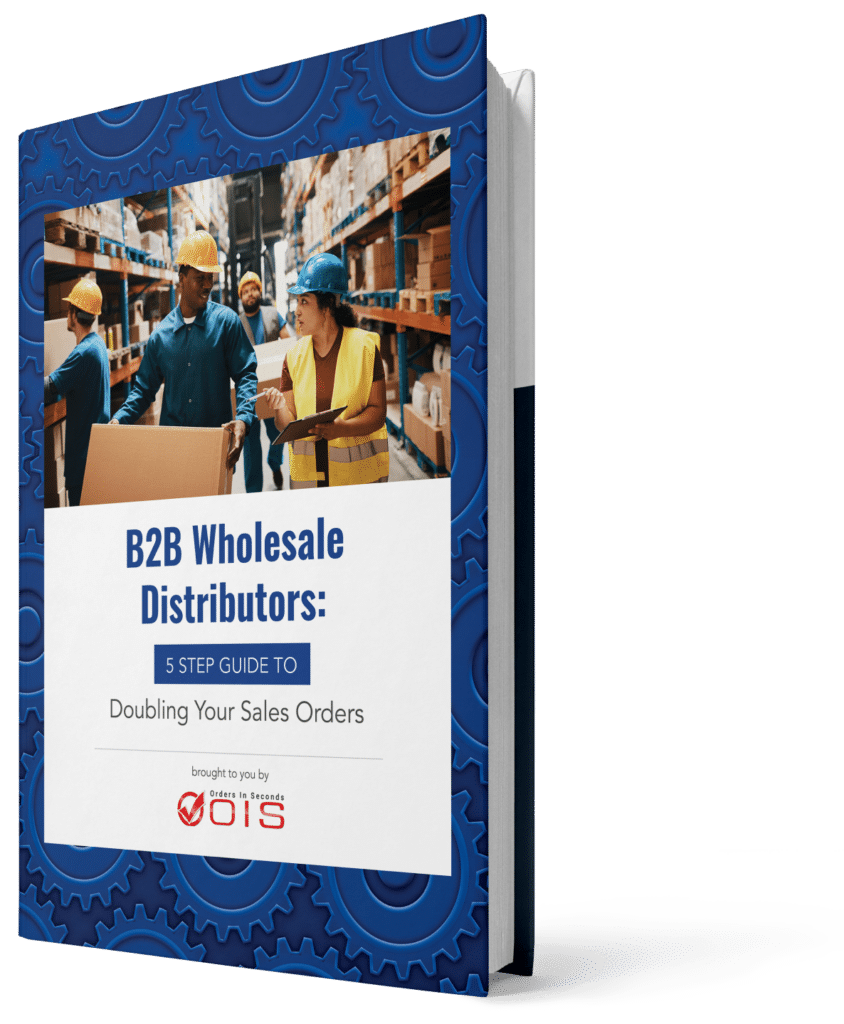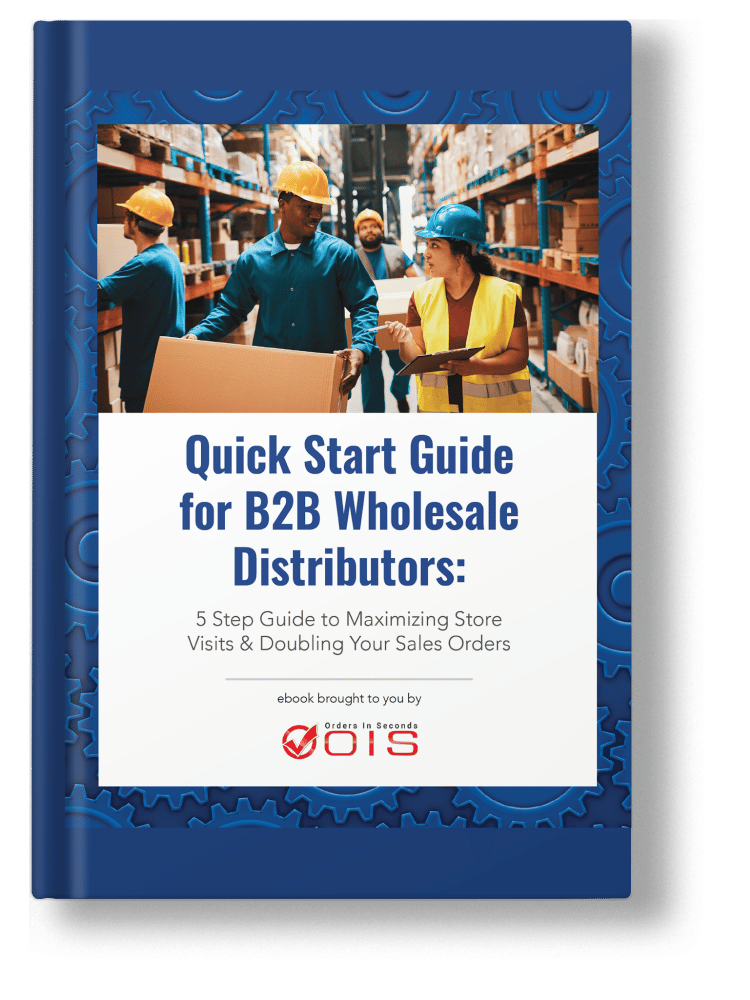Seeking to elevate your resale game with profitable wholesale products? Whether you’re an experienced entrepreneur or just starting out, the success in reselling hinges on sourcing the right items at the right price. Our comprehensive guide outlines the essential insights for identifying in-demand wholesale products for resale, securing them at competitive prices, and practical tips to optimize your profit margins in the dynamic 2025 market.
Key Takeaways
- The wholesale industry involves buying bulk products at discounted rates from manufacturers or suppliers and reselling them for profit, offering flexibility and scalability for various businesses.
- To maximize profit margins, it’s crucial to conduct market research and trend analysis to identify in-demand products in profitable niches with low competition, utilizing market research tools and techniques.
- Efficient inventory management and shipping are essential for the success of a wholesale resale business, and fostering strong relationships with suppliers can directly impact profit margins through better pricing and terms.
Table of Contents
- Understanding the Wholesale Industry
- Identifying Profitable Niches for Wholesale Resale
- Top Wholesale Product Categories for Resale
- Building Relationships with Wholesale Suppliers
- Managing Inventory and Shipping for Wholesale Resale
- Marketing Your Wholesale Resale Business
- Summary
- Frequently Asked Questions
- Maximizing Your Profits in 2025 with Orders in Seconds
Understanding the Wholesale Industry

Consider the wholesale industry a conduit that allows the acquisition of goods at reduced prices that you can subsequently resell for a profit. The wholesale business model revolves around the purchase of products in bulk at discounted rates directly from manufacturers or suppliers, enabling them to be sold at a profit to retailers or other businesses. This method facilitates improved profit margins because of the reduced procurement costs. To buy wholesale not only offers a multitude of advantages, including a wide product range to cater to diverse customer needs and enhance competitiveness in the market, especially when selling online.
The appeal of the wholesale industry is grounded in its flexibility and scalability. Whether you’re a small business (quickbooks software for small business) owner looking to expand or an enterprising individual eyeing a new venture, the wholesale industry can offer a platform for growth. Utilizing products at varying wholesale prices boosts average order values through cross-selling or upselling.
Economies of scale indicate that purchasing higher quantities wholesale results in a lower cost per unit, potentially leading to higher total sales revenue.
For more insights about the wholesale distribution industry and common mistakes you should avoid, download our free eBook “Avoid the top 5 Mistake Wholesale Distributors Make”
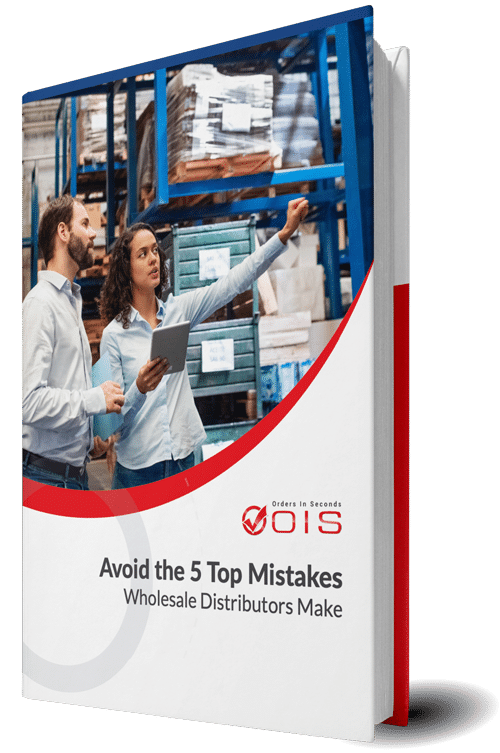
Avoid the Top 5 Mistakes Wholesale Distributors Make
Are you making one of the top 5 mistakes that plague wholesale
distributors? Download our free eBook to find out. We’ve also included tips and guidance to help you save time and avoid costly mistakes.
Wholesale vs. Retail
Although most of us are well-versed with the retail concept, wholesale functions on a distinct level. The wholesale business model is characterized by the sale of bulk goods to other businesses at discounted prices, focusing primarily on the business-to-business (B2B) market. In contrast, the retail business model revolves around selling products directly to consumers at regular prices, primarily focusing on the business-to-consumer (B2C) market.
Fundamentally, the difference lies in the target market and pricing strategies. While wholesale targets other businesses and provides discounted prices, retail targets end consumers and sells products at regular, often marked-up, prices. Thus, it’s clear that the wholesale model offers a unique advantage – the potential to buy goods at lower prices and sell them for a profit, an opportunity that retail doesn’t always provide.
Advantages of Reselling Wholesale Products
Reselling wholesale products carries numerous advantages, including:
- Lower wholesale price per unit of goods
- Ability to set higher selling prices
- Savings on inventory costs
- Enhancement of profit margins
Moreover, reselling wholesale products allows businesses to sell wholesale and:
- Focus on marketing and sales without being burdened by production complexities
- Leverage better brand visibility
- Capitalize on increased average order volume and value
Make the most of these advantages by learning best practices to increase your profits. You can find them in our ebook “Double Your Sales Orders in 5 Steps” Download it for free below.
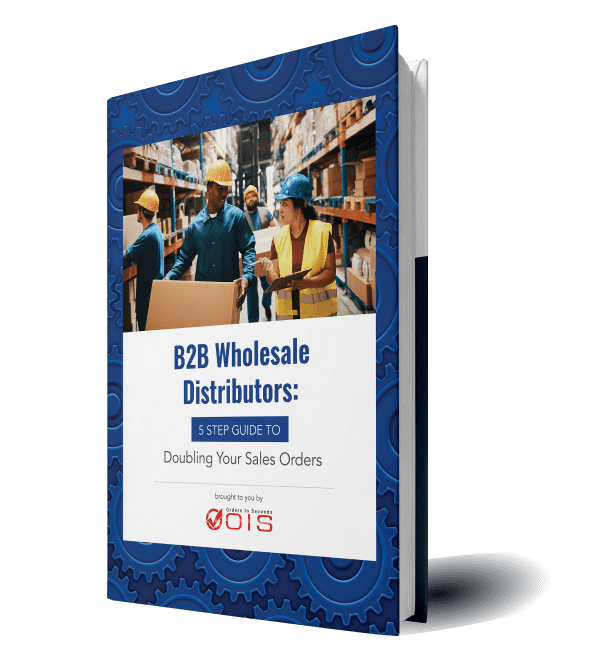
Double Your Sales Orders in 5 Steps
This exclusive eBook is packed with real-world, data-driven concepts that can help maximize your store visits and double your sales. Get it for FREE – Today!
Identifying Profitable Niches for Wholesale Products for Resale
Pinpointing profitable niches for wholesale resale is a vital aspect of maximizing your profit margins. It involves a deep dive into market research and trend analysis to discover which products are in high demand and have lower competition. This knowledge empowers you to make informed decisions about which wholesale products to invest in for resale.
The process of identifying these profitable niches involves several steps. It includes utilizing market research tools and techniques, analyzing product trends, and assessing the competitive landscape for your chosen products. Now, let’s delve deeper into these aspects to fully grasp the process of identifying profitable niches for wholesale resale.
Market Research Tools and Techniques
Market research is an essential element in pinpointing profitable niches for wholesale resale. It helps you understand which products are in high demand and have low competition. In this digital age, there are several tools available that can aid in this research. Some of the recommended market research tools for the wholesale industry include:
- Qualaroo
- Statista
- Google Analytics
- Google Trends
- GrowthBar
Leveraging specialized tools such as AMZScout can augment product sales in the wholesale industry. These tools and techniques play a crucial role in identifying high-demand products with low competition, setting the stage for profitable niches in wholesale resale.
Analyzing Product Trends
Product trends can considerably influence a wholesaler’s profit. Keeping up with these trends can facilitate profitability predictions, foresee future customer requirements, and identify sought-after products. Effective methods for analyzing product trends include:
- Utilizing business intelligence tools
- Conducting market trend analysis
- Performing broader sector scans to highlight relevant trends in the wholesale and distribution sectors.
The frequency of this trend analysis is equally important. Wholesalers should regularly analyze trends, such as annually or quarterly, to promptly react to market changes and maintain optimal profitability. By staying ahead of product trends, you can capitalize on emerging markets and ensure a selection of goods with higher profit margins.
Top Wholesale Product Categories for Resale

When it comes to finding cheap wholesale products, the top best cheap wholesale products categories for resale include wholesale items such as:
- Home & garden items
- Fashion accessories
- Fitness & sports equipment
- Eco-friendly products
These categories were selected based on their appeal to a wide range of customers and their high potential for profit. Let’s delve deeper into each of these categories and explore what makes them an ideal choice for wholesale resale.

Home & garden products are considered top wholesale goods for resale due to their wide range of items catering to diverse customer needs. Current trends in this market encompass the growth of B2C e-commerce due to increased smartphone and internet use. Additionally, there is a focus on unique garden pots as businesses seek to differentiate themselves in the market.
Profit margins for home and garden products in wholesale can differ significantly due to factors such as costs, markups, and specific market conditions. Retail nurseries and garden centers typically markup products by around 2.35 times or double their costs, but the actual margins are influenced by acquisition costs and revenues from retailers.
Fashion Accessories
Fashion accessories are popular for wholesale resale because they can be acquired at low costs and have the potential for high markups, allowing for significant profit margins. The most profitable fashion accessories for wholesale resale include jewelry, women’s boutique clothing, home decor, sunglasses, and DIY accessories. Current trends to be aware of encompass statement earrings, scarves and bandanas, hats and headbands, belts and waist cinchers, layered necklaces, clutch bags, and more.
Sourcing fashion accessories for resale involves:
- Researching reputable B2B portals or marketplaces
- Assessing supplier reputation and product quality
- Comparing prices
- Reading reviews and ratings from other buyers
These steps can help you find the best fashion accessories to resell.
The fitness & sports equipment category is a growing market within the health and wellness niche, with high demand, especially as more people prioritize their well-being. The demand for fitness & sports equipment is on the rise, leading to potential for profitable wholesale resale within this category.
The most popular fitness equipment in the wholesale market are:
- Hip resistance bands
- Fitness apparel
- Yoga/exercise mats
- Yoga balls
- Dumbbells
- Jump ropes
Sports equipment and athletic/leisure goods are among the popular sports products that can be sold wholesale. If you’re looking to sell products, especially buy cheap wholesale products, these items are a great option.
Eco-friendly Products
Eco-friendly products are gaining popularity as consumers become more environmentally conscious. This shift in consumer attitudes presents a unique niche for wholesale resale. The prevailing consumer trends in the eco-friendly products market indicate:
- A notable increase in preference for sustainable products
- A rise in sales of environmentally and socially responsible items
- A heightened demand for goods made from sustainable materials
- An uptick in online searches for sustainable goods
- A readiness to pay a premium for sustainable items
Some of the top-selling eco-friendly products include seed-growing kits, planters, handcrafted patio sets, recycled outdoor rugs, birdhouses, beekeeping supplies, and pet supplies like eco-friendly apparel such as sweatshirts. Additionally, there are popular eco-friendly personal items such as mugs, bio phone cases, tote bags, and wall art made from eco-conscious materials like wood.
Building Relationships with Wholesale Suppliers

Although identifying profitable niches and top product categories is vital, the success of your wholesale resale business also hinges on establishing robust relationships with wholesale suppliers. A reliable supplier ensures a steady supply of products and favorable terms, which can directly impact your profit margins.
Selecting suitable suppliers is pivotal to success, impacting product quality, customer satisfaction, and the maintenance of a competitive edge directly. Furthermore, developing a strong relationship with a wholesale supplier can offer opportunities to place last-minute orders, sell inventory quicker, or restock efficiently to prevent shortages, which can have a significant impact on business operations in the long run.
Finding Reputable Suppliers
Locating trustworthy suppliers is the initial step towards establishing solid supplier relationships. Some of the leading online directories for finding reputable wholesale suppliers include:
- SaleHoo
- Worldwide Brands
- Wholesale Central
- Top Ten Wholesale
- eWorldtrade
To confirm the authenticity of a wholesale supplier, it is advisable to request official documentation and verifiable testimonials before making any purchases. Additionally, seeking unbiased opinions from other retailers who have procured wholesale products from the supplier on social media or online forums can provide valuable insights.
Negotiating Prices and Terms
Negotiating prices and terms with suppliers is a fundamental facet of the wholesale business. Successful negotiation can enable you to secure the best possible deal and maximize profit margins.
When approaching the understanding and negotiation of payment terms with wholesale suppliers, it’s important to:
- Assess your bargaining power
- Prioritize which suppliers to negotiate with
- Research the financial situation of the supplier to understand their needs
- Communicate clearly and respectfully
- Be flexible and creative in finding mutually beneficial arrangements
- Build trust and rapport
- Seek expert advice if necessary
Efficiently managing inventory and shipping is a key component of operating a successful wholesale resale business. It ensures efficient operations, customer satisfaction, and ultimately, the success of your business.
Effective inventory management techniques include:
- Streamlining inventory processes
- Optimizing warehouse space
- Tracking and improving inventory flow
- Incorporating technology
- Maintaining clear communication
- Automating operations
- Offering product promotions and markdowns
- Using demand forecasting
- Keeping on-hand inventory to a minimum.
Inventory Management Techniques
Implementing robust inventory management techniques is key to avoiding stockouts or overstocks, which can negatively impact your profit margins and customer satisfaction. There are several techniques you can use, such as Just-In-Time (JIT) inventory systems and the ABC inventory management technique.
To prevent stockouts in a wholesale resale business, it’s recommended to:
- Maintain accurate inventory data
- Engage in reliable inventory planning
- Balance stock levels to avoid overstocking or understocking
- Consider dropshipping
- Consistently monitor and replenish inventory.
Shipping Options and Strategies
Shipping can incur substantial costs in the wholesale business, making it necessary to identify the most cost-efficient and reliable delivery methods for your products. When purchasing wholesale products in bulk, it is crucial to take into account product dimensions as larger and heavier products can lead to increased shipping costs, which can impact overall profitability and inventory storage.
Factors to consider when determining shipping costs include:
- The expense of receiving products from the supplier
- The cost of shipping them to customers
- Product size and weight
- The durability of the products for shipping
Marketing is a pivotal element of any thriving wholesale resale business. It helps to attract customers and drive sales, ultimately increasing profits. From utilizing online marketplaces to leveraging social media and content marketing, there are various strategies you can employ to effectively market your wholesale resale business.
Methods for utilizing online marketplaces to market wholesale products involve selecting a marketplace that aligns with your niche, creating persuasive listings, promoting through email campaigns, engaging on social media, and utilizing marketplace advertising to enhance visibility. Furthermore, social media can improve marketing efforts by enabling engagement with the audience, increasing brand awareness, connecting with potential customers, showcasing products, and running targeted ad campaigns.
Online Marketplaces and Platforms
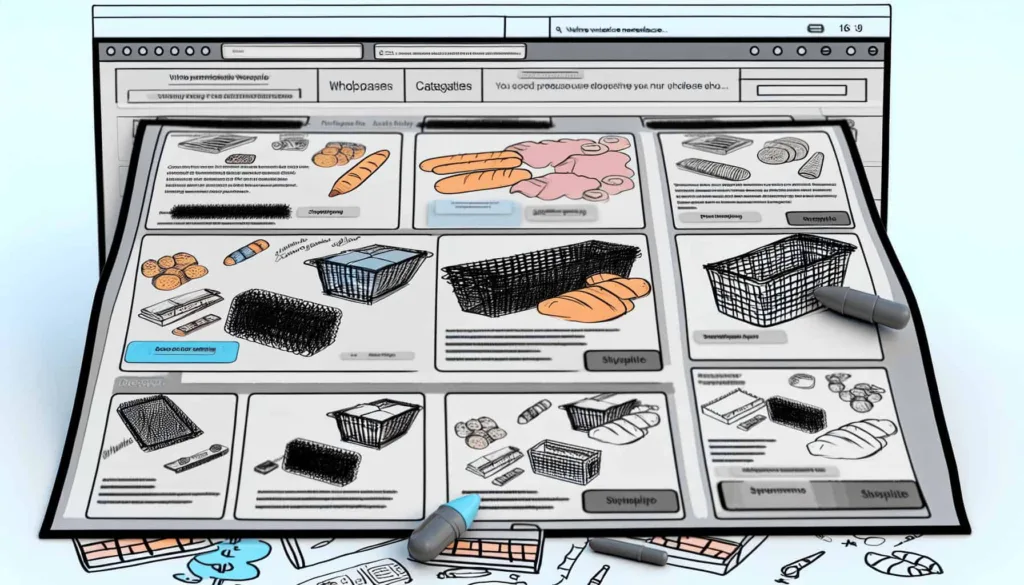
Online marketplaces and platforms provide a convenient and efficient way to sell online, reach a wide audience, and showcase your products. Prominent online wholesale marketplaces for wholesale resale consist of Alibaba, CREOATE, Faire, Handshake, Ankorstore, JOOR, and Fairling. Furthermore, there are specialized platforms catering to different product niches such as RangeMe, IndieMe, Mable, Joor, and TradeIndia.
Selling wholesale products on platforms like Amazon and eBay offers advantages such as:
- Higher profit margins
- Access to established brands and a large customer base
- Scalability and growth opportunities
- Less competition
- The trusted reputation of these platforms
Social Media and Content Marketing
Social media and content marketing provide distinctive opportunities to interact with potential customers, enhance brand visibility, and boost traffic to your online store. Recommended social media platforms for marketing a wholesale resale business include:
Strategies for building brand awareness for a wholesale resale business on social media include:
- Creating social media accounts for the business and posting regularly
- Engaging with the audience through commenting, replying, and sharing content from others
- Running contests and giveaways to encourage participation and sharing
- Defining the target audience and researching the competition
- Displaying products and making compelling offers
- Building brand reputation through positive comments and interactions
In this journey through the world of wholesale, we’ve discovered the potential of this business model to maximize profit margins. By understanding the wholesale industry, identifying profitable niches for resale, choosing popular product categories, building relationships with suppliers, managing inventory and shipping, and effectively marketing your business, you can set yourself up for success in 2025 and beyond. Remember, the wholesale industry offers a world of opportunities, and with the right strategies, you can tap into these opportunities to maximize your profits.
Frequently Asked Questions
Yes, it’s important to have a retail license and an employer identification number if you sell in a brick-and-mortar location to ensure compliance with government regulations and tax requirements.
How do I find discounted items to resell?
You can find discounted items to resell at thrift stores, major retail stores, yard sales, Facebook Marketplace, and Gamestop. Just keep an eye out for undervalued items.
How to buy wholesale without a business?
You can buy wholesale without a business by purchasing items as a consumer in a retail environment or through B2B online marketplaces, online forums, local event listings, and more. This also applies if you don’t have a tax ID number.
What are the advantages of reselling wholesale products?
The advantages of reselling wholesale products include lower costs, higher profit margins, and the opportunity to concentrate on marketing and sales instead of production. This can lead to increased efficiency and profitability in your business.
What tools can be used for market research in the wholesale industry?
You can use Qualaroo, Statista, Google Analytics, Google Trends, and GrowthBar for market research in the wholesale industry. These tools can provide valuable insights and data to help you make informed business decisions.
Maximizing Your Profits in 2025 with Orders in Seconds
Beyond selecting top products and building relationships with suppliers, you have to start thinking about how to fortify your business with the right tools.
For over 17 years, Orders in Seconds has supported wholesale distributors, providing the OIS Pro App for effortless order-taking and the OIS eCommerce App for a 24/7 sales platform. Elevate your wholesale operations with OIS – the key to efficiency and success! Schedule a free demo to learn more!



